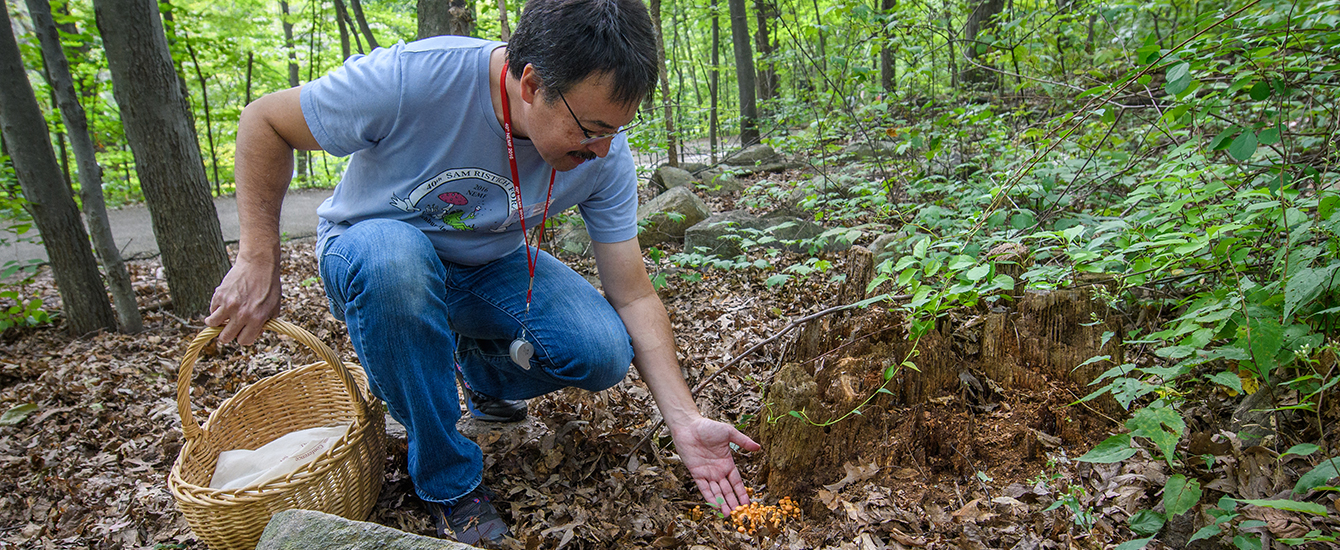Biology
Resolving the phylogenetic position of the Wallemiomycetes: An enigmatic major lineage of Basidiomycota
Document Type
Article
Abstract
The Wallemiomycetes includes three species of molds from the genus Wallemia. These fungi are adapted to environments of high osmotic stress, contaminate various foods, cause respiratory disease, and have an unusual mode of asexual reproduction. Wallemia was recently proposed as a new class based on 18S ribosomal RNA gene sequences to accommodate the isolated position of the clade in the Basidiomycota. We analyzed the phylogenetic position of the Wallemiomycetes using 3451 nucleotide characters of the 18S, 25S, and 5.8S ribosomal RNA genes and 1282 amino acid positions of rpb1, rpb2, and tef1 nuclear protein-coding genes across 91 taxa. Different gene regions and methods of phylogenetic inference produce mildly conflicting placements of the Wallemiomycetes. Parsimony analyses of nrDNA data suggest that the Wallemiomycetes is an early diverging lineage of Basidiomycota, occupying a basal position near the Entorrhizomycetidae. Ultrastructural data, some Bayesian analyses, and amino acid sequences suggest the Wallemiomycetes may be me sister group of the Agaricomycotina or Ustilaginomycotina. The combined gene tree supports the Wallemiomycetes as a lineage basal to a core clade of Pucciniomycotina, Ustilaginomycotina, and Agaricomycotina with robust measures of branch support. This study reinforces the isolated position of Wallemia in the Basidiomycota using molecular data from six nuclear genes. In total, five major lineages of Basidiomycota are recognized: the Agaricomycotina, Ustilaginomycotina, Pucciniomycotina, Entorrhizomycetidae, and the Wallemiomycetes. © 2006 NRC.
Publication Title
Canadian Journal of Botany
Publication Date
12-2006
Volume
84
Issue
12
First Page
1794
Last Page
1805
ISSN
0008-4026
DOI
10.1139/B06-128
Keywords
Basidiomycota, Elongation factor 1-alpha, fungi, molds, RNA polymerase II, systematics
Repository Citation
Matheny, P. Brandon; Gossmann, Jasmin A.; Zalar, Polona; Kumar, T. K.Arun; and Hibbett, David S., "Resolving the phylogenetic position of the Wallemiomycetes: An enigmatic major lineage of Basidiomycota" (2006). Biology. 260.
https://commons.clarku.edu/faculty_biology/260



